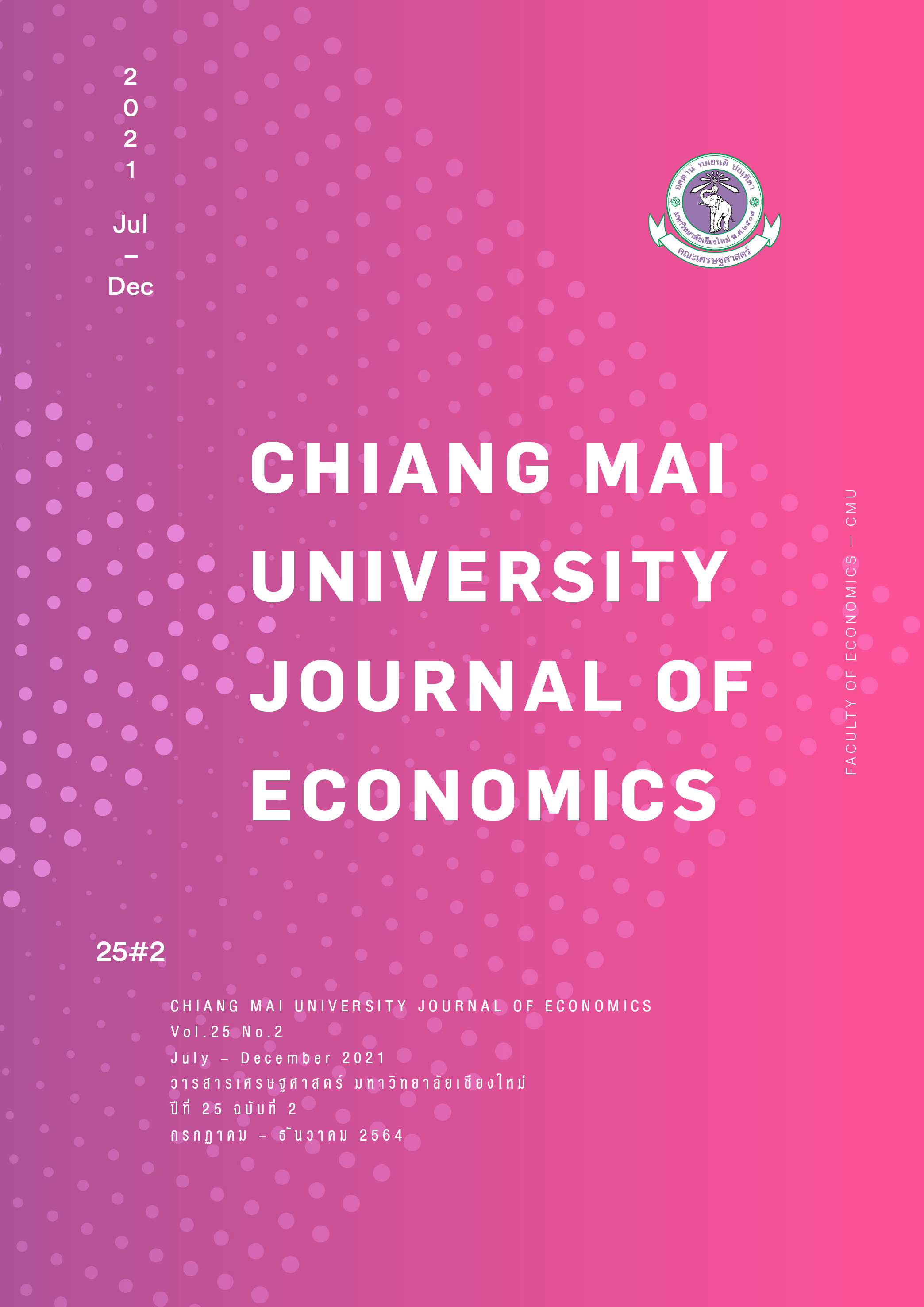Asymmetric relationship between Budget Deficit and Economic Growth in Nigeria.
Keywords:
Asymmetries, Budget Deficit, Economic Growth and NARDL.Abstract
This study examines asymmetry in the nexus between budget deficit and economic growth in Nigeria from 1981 to 2018 using a nonlinear ARDL model advanced by Shin et al. (2014). The findings suggest the presence of asymmetries in the nexus between the indicated variables in the short and long run.
The findings further show that budget deficit affect economic growth both in the short and long run negatively which makes this work a landmark since previous studies were unable to capture this aspect of non-linearity. Therefore, there is need for the government to ensure proper monitoring of the budget implementation as well as ensuring fiscal discipline among all tiers of government and parastatals in the country so as to ensure that the desired outcome is achieved both in the short and long run.
References
Eze, O.R & Festus, O.G (2016). Impact of Deficit Financing on Economic Stability in Nigeria: Analysis of Economic Growth. Journal of Applied Finance & Banking, Sciencepress Ltd. 6 (1), 111-125.
Fischer, S. (1993). The role of macroeconomic factors in growth. Journal of Monetary Economics, 32(3), 485–512.
Monogbe, I & Okah, J.O (2017).Deficit financing in the process of Economic Development in Nigeria. Saudi Journal of Business and Management Studies. Scholars Middle East Publishers, Dubai, United Arab Emirates. 2(3), 322-329.
Monogbe, T.G; Dornubari, I.G & Emah, D.S (2015). Deficit Finance and the Nigeria Economic performance. International Journal of Advanced Academic Research for Social Sciences and Education. 1(3).
Mohammed, E.H & Mahfuzul, H (2017). Fiscal deficit and its impact on Economic Growth: Evidence from Bangladesh. Journal of MDPI, Basel, Switzerland. 5(37), 1-19.
Natalia, A.(2018). An assessment of the relationship between budget deficit and Economic growth in Namibia. Being a Thesis submitted in partial fulfillment of the requirements for the degree of Master of science in economics of the university of Namibia. 1-98.
Ndoricimpa, A. (2017). Analysis of asymmetries in the nexus among energy use, Pollution emissions and real output in South Africa. Energy , 125, 543-551
Oltjana, Z & Madelena, B (2016).Budget deficit and Economic Growth in Albania.
International Journal of Engineering Sciences and Research Technology. 5(9), 333-340.
Oluwafadekemi, A & Adeyemi, A.O (2018). Fiscal Deficit and Economic Growth in Nigeria:Ascertaining a Feasible Threshold. International Journal of Economics and Financial Issues, 8(3), 296-306.
Peter, U. & John, I (2018). Fiscal Deficit and Nigeria’s Economic Development. International Journal of Economics, Commerce and Management, 4(5), 137-150.
Shin, Y., B. Yu, & Greenwood-Nimmo, M.J(2014). “Modelling Asymmetric Cointegration and Dynamic Multipliers in a Nonlinear ARDL Framework.”
Zuze, M. (2016). Fiscal deficit- Economic growth nexus in Zimbabwe: A vector auto regression analysis. International Journal of Innovative Research and Development. .5 (6), 380-386.
Downloads
Published
Issue
Section
License
All opinions and contents in the CMJE are the responsibility of the author(s). Chiang Mai University Journal of Economics reserves the copyright for all published materials. Papers may not be reproduced in any form without the written permission from Chiang Mai University Journal of Economics.
ข้อคิดเห็นที่ปรากฏและแสดงในเนื้อหาบทความต่างๆในวารสารเศรษฐศาสตร์มหาวิทยาลัยเชียงใหม่ ถือเป็นความเห็นและความรับผิดชอบโดยตรงของผู้เขียนบทความนั้นๆ มิใช่เป็นความเห็นและความรับผิดชอบใดๆของวารสารเศรษฐศาสตร์ มหาวิทยาลัยเชียงใหม่
บทความ เนื้อหา และข้อมูล ฯลฯ ในวารสารเศรษฐศาสตร์มหาวิทยาลัยเชียงใหม่ ถือเป็นลิขสิทธิ์เฉพาะของคณะเศรษฐศาสตร์มหาวิทยาลัยเชียงใหม่ หากบุคคลหรือหน่วยงานใดต้องการนำทั้งหมดหรือส่วนหนึ่งส่วนใดไปเผยแพร่ต่อหรือเพื่อกระทำการใดๆ จะต้องได้รับอนุญาตเป็นลายลักษณ์อักษร จากวารสารเศรษฐศาสตร์ มหาวิทยาลัยเชียงใหม่






